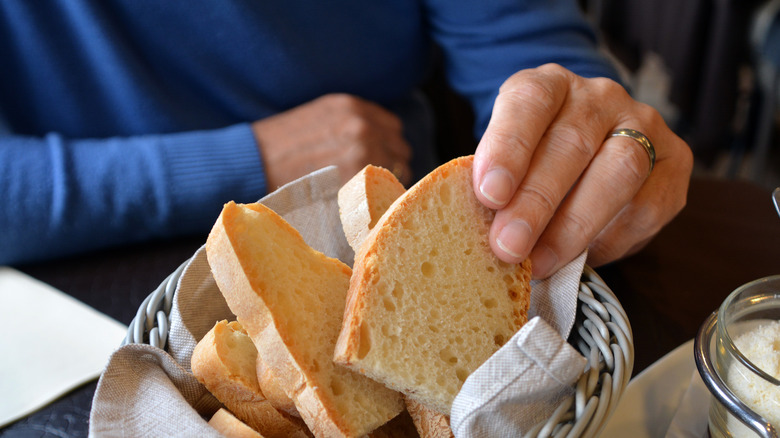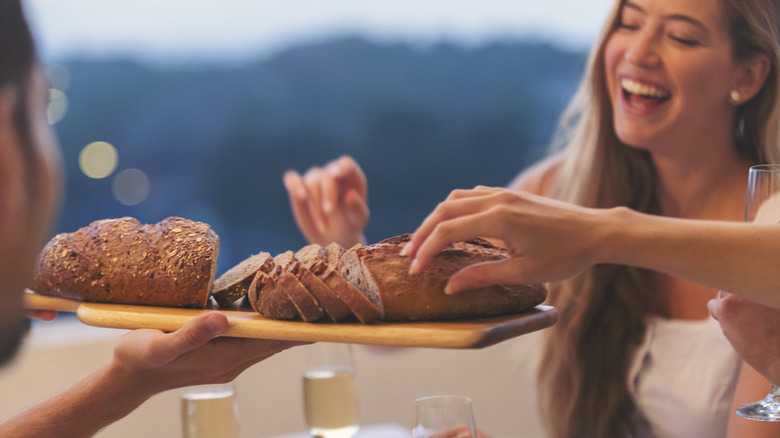Here's What Happens When You Eat Bread On An Empty Stomach
When you've waited more than an hour for a table at your favorite restaurant, your mouth waters when your server brings the basket of fresh rolls. The bread breaks easily into your fingers as the steam rises. Your empty stomach can't wait.
Yet bread often gets a pretty bad rap for its effect on blood sugar. Both simple and complex carbohydrates break down into glucose, and your body must produce insulin to move this glucose to supply your cells with energy. Simple carbs include fruit juices, candy, and anything that has added sugar. These are broken down much more quickly into glucose, which can cause a spike in your blood sugar. Complex carbs like bread take a little longer for your body to break down into glucose because they typically have more fiber to slow down digestion.
However, processed carbs like white bread and pasta are broken down by your body almost as quickly as simple carbs. When you eat white bread without any other food to slow down digestion, your blood sugar can spike (per Houston Methodist).
Blood sugar spikes can lead to type 2 diabetes or weight gain
While white bread's occasional spike in your blood sugar is probably harmless, your body can become less responsive to insulin to bring down your blood sugar. Over time, consistently high levels of glucose in your bloodstream can lead to type 2 diabetes (per Houston Methodist). People with type 2 diabetes need to be particularly careful not to eat foods like white bread before their meals, according to a 2015 pilot study in Diabetes Care. The small study found that people with metformin-treated type 2 diabetes who ate ciabatta bread and orange juice before their main meal had higher post-meal glucose levels than when they had the bread and juice after their meal.
According to Houston Methodist, consuming too many carbohydrates at a time could also lead to weight gain. When your cells have enough glucose for energy, your liver stores the excess glucose for later use. If you already have enough stored glucose in your liver, your body will convert this leftover glucose into fat.
Not all bread spikes your blood sugar
You don't have to give up on bread, but you can make wiser choices about bread so it doesn't affect your blood sugar. Breads with added sugar, high-fructose corn syrup, and white flour are probably more processed and cause a quicker rise in your blood sugar (per Signos). It also helps to know what types of bread fall on the glycemic index.
The glycemic index classifies foods and drinks based on how quickly they increase your blood sugar. According to the Glycemic Index Food Guide, a glycemic index of 70 or above is considered high, and it's best to keep foods like these to a minimum. White and wheat bread have a high glycemic index compared to other types of bread such as whole grain, pumpernickel, or rye bread. If you're looking for a low-glycemic-index bread, try spelt or sourdough bread.
Even if you really love white bread, you can control these blood sugar spikes by pairing the bread with other foods. According to Baylor, Scott & White Health, try adding a fat- or protein-rich food to your bread to slow down digestion. Or you can limit yourself to just one roll before dinner.


